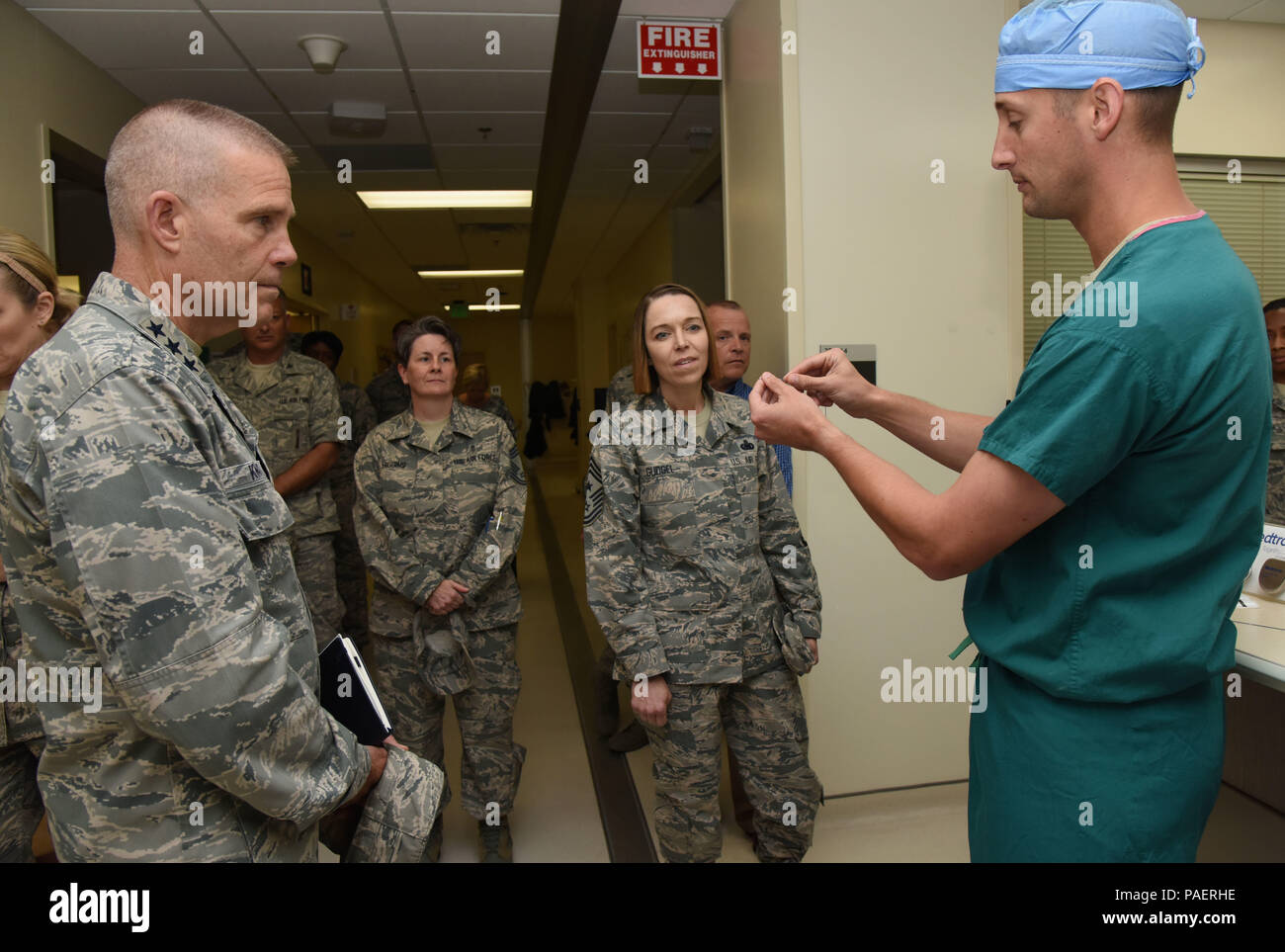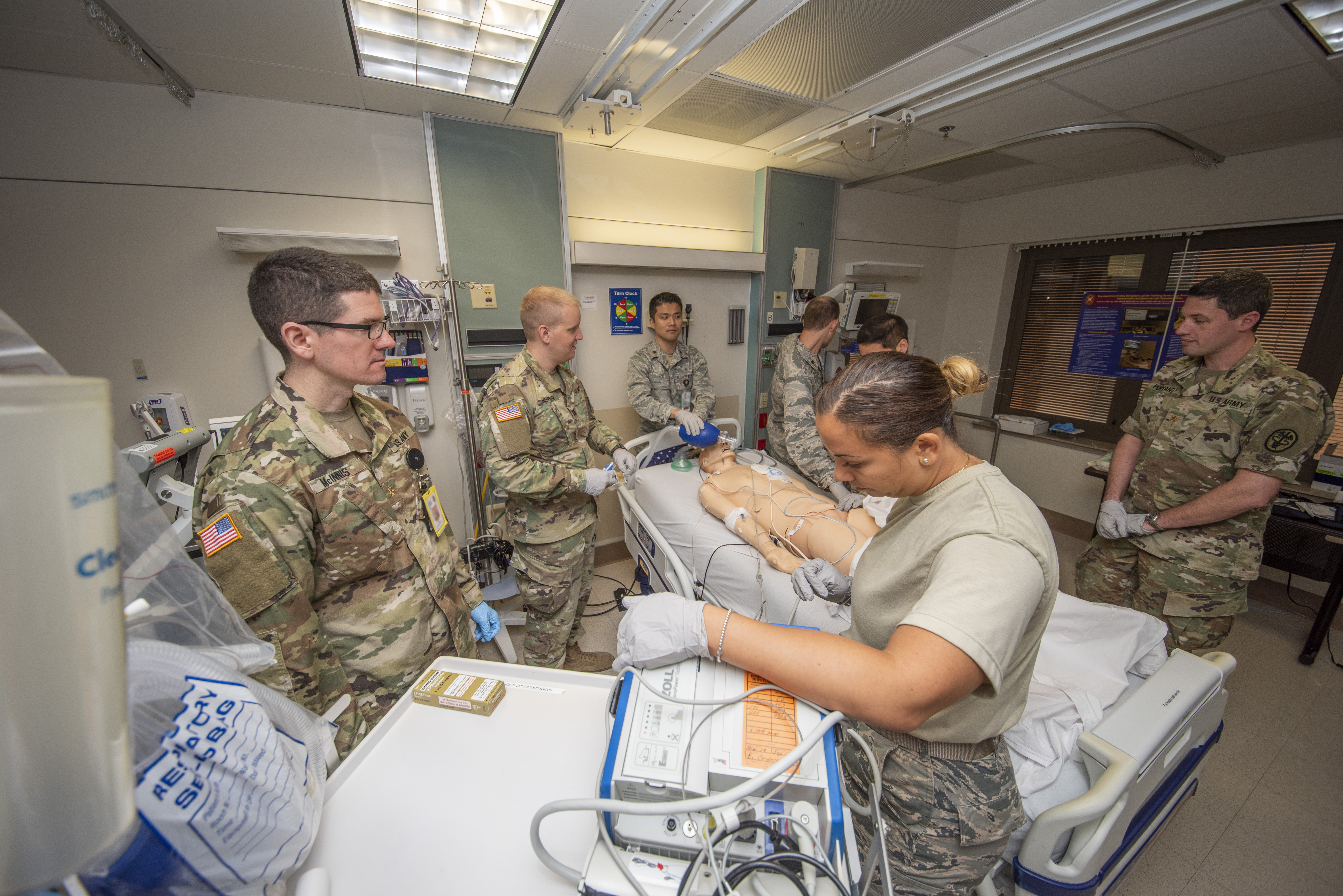Military Cardiologist - Army Captain (Dr.) Zorana Mrsic is less afraid. In fact, one of the only things that bothers a Walter Reed National Military Center cardiologist is the chance to mispronounce a new patient's name.
Born in Sanski Most, Bosnia in 1995 during the modern Balkan Wars, Zorana Mrsic (pronounced Mrch'-chich) and her family moved to Serbia when she was just 7 years old.
Military Cardiologist
While living with extended family in Bukovac, Serbia, Mrsic's parents asked to move to Canada, Australia or the United States. The US Embassy in Belgrade, Serbia was the first to respond.
Cardiologist Specialist Man Consult Sold...
After being accepted, her family left Serbia and settled in Lawrenceville, Georgia, a suburb northeast of Atlanta, where Mrsic and her sister attended Central Gwinnett High School, and Mrsic graduated as valedictorian. .
His high school chemistry teacher told him that he thought he could be a very good doctor, which sparked his interest in medicine.
Mrsic fast-tracked her undergraduate studies at the University of Georgia in just two years. After graduating with a degree in biology and molecular biology, he entered medical school at the Medical College of Georgia in 2009.
While attending medical school, Mrsic decided to enter the F. Edward Hébert Army Health Professions Scholarship Program. HPSP provides grants for doctoral and other special programs, covering tuition, books and fees for up to four years of study as well as providing a monthly stipend. Upon completion of the program, the recipient is commissioned into the United States military as an officer in the Army, Air Force or Navy.
Hiring Event In Norman Helps Oklahoma Military Veterans Find Jobs
"Basically I wanted to join the army because I wanted to be trained as a military doctor," Mrsic explained. "The other benefits that the Army offers, as well as the financial incentives, I convinced my family that it was the right choice," he continued.
"I really believed, and I still believe, that military doctors have the best training, and I want to be the best doctor I can be," Mrsic added.
He was commissioned by the Army as an Army second lieutenant in March 2010. After medical school, his first military assignment was at Brooke Army Medical Center in San Antonio, Texas, where he completed his residency and then attended the of the commanding officer. Army.

Mrsic arrived at WRNMMC in September 2016, and now serves as a fellow in the cardiovascular fellowship program, seeing patients, attending specialized classes and training under the supervision of cardiologists at the medical center. Currently in the "echo" circuit, he "performs and interprets echocardiograms, [done] to evaluate various heart conditions. These studies include transesophageal echocardiograms to guide procedures; stress echocardiograms to evaluate coronary artery disease in the heart or valvular disease; and with the latest technology, such as imaging of complications and four-dimensional echocardiography," explained Army Col. (Dr.) Todd Villines, director of the fellowship's cardiovascular program.
A New Normal: Lauren's Story
Explaining her fellowship, Mrsic explained how she learned not only about medicine, but also about military leadership. "The way this clinic works, as a fellow you have to interact a lot and you learn, and you learn how to be a military leader mainly through that process ... how to take care of people working with you, how to get what they need, and what support they need," he said.
Although new to the medical profession, this Army medic enjoyed learning all he could during his WRNMMC cardiology fellowship, and is working to become a cardiologist in the Department of Defense, he said.
Currently serving as a senior cardiology fellow, Mrsic is responsible for the fellows' daily schedule and led the launch of the "DC Cardiology Fellow Bootcamp," a unique, simulation-based, two-day didactic program designed to help fellows learn. basic knowledge of cardiology procedures before beginning their clinical rotations.
Villines, who worked with Mrsic every day during her fellowship, explained why she feels she is on track to become a future leader within the Military Health System and within the broader heart community. "He was selfless and willing to serve in any capacity, whether in the field of operations with units, on the battlefield, or as a clinical leader."
Update: Dr. Brad Clair / House Quickly Passes Bill For Military Doctors / Plight Of California Cardiologist Spurs Action By Congress
Mrsic also sees her future in military medicine, saying “I wouldn't mind doing this for the rest of my life.”1 / 4 Show Short Description + Hide Description – Lt. Col said. The fetal cardiologist at Madigan Medical Center at Joint Base Lewis-McChord, Wash., joined March 5, along with Capt. (Dr.) Kaitlyn Bixel, pediatrician at General Leonard Wood Community Hospital in Fort Leonard Wood, Mo., through the technology they use to work with echocardiograms as they did to diagnose a heart defect in a newborn recently. (Photo Credit: Kirstin Grace-Simons) WATCH FIRST
2 / 4 Show Captions + Hide Captions – Shared by Capt. (Dr.) Kaitlyn Bixel, a pediatrician at General Leonard Wood Community Hospital in Fort Leonard Wood, Mo., her screen to Lt. Col said. (Dr.) Kirk Liesemer, a pediatric and fetal cardiologist at Madigan Medical Center at Joint Base Lewis-McChord, Wash., uses an echocardiogram as they did for a newborn patient with a heart murmur. heart recently. The procedure revealed a defect that required surgery. Doctors consult and discuss how to share the good news of the baby's growth on March 5. (Photo Credit: Kirstin Grace-Simons) VIEW ORIGINAL
3 / 4 Show Subtitles + Hide Subtitles – Lt. Col. (Dr.) Kirk Liesemer, a pediatric and fetal cardiologist at Madigan Medical Center at Joint Base Lewis-McChord, Wash., reads an echocardiogram shared March 5, with Capt. (Dr.) Kaitlyn Bixel, a pediatrician at General Leonard Wood Community Hospital in Fort Leonard Wood, Mo., about the technology they're using to collaborate as they recently diagnosed a heart defect in a newborn. (Photo Credit: Kirstin Grace-Simons) WATCH FIRST

4 / 4 Show Subtitles + Hide Subtitles – Lt. Col. (Dr.) Kirk Liesemer, a pediatric and fetal cardiologist at Madigan Medical Center at Joint Base Lewis-McChord, Wash., will be joined March 5, by Capt. (Dr. ) Kaitlyn Bixel, a pediatrician at General Leonard Wood Community Hospital in Fort Leonard Wood, Mo., about the technology they're using to collaborate as they recently diagnosed a heart defect in a newborn. (Photo Credit: Kirstin Grace-Simons) WATCH FIRST
Commentary: Metc Cardiovascular Technicians Training For Healthy Hearts > Joint Base San Antonio > News
MADIGAN MEDICAL CENTER, Joint Base Lewis-McChord, Wash. - Distance can cause death. Located in the Ozarks in Missouri, Fort Leonard Wood is known for being a remote post. When a baby was born there recently with a suspicious heart murmur, an understanding doctor on his first assignment and a tele-echo procedure put the baby on the path to health.
"When I listened to the baby's heart he had an unusual murmur - loud and harsh," said Capt. (Dr.) Kaitlyn Bixel, a pediatrician at General Leonard Wood Community Hospital examined the baby hours after birth. .
A check of his identity further assured him that he was generally healthy, but the characteristics of the murmur convinced him that he had some sort of heart defect. He needs more answers.
"I don't want to ignore the complaints and risk him getting worse right away, but I also don't want to cancel and take the child away from his family for no good reason," Bixel said.
Blanchfield Army Community Hospital > Health Services > Specialty Care > Cardiology
The COVID-19 pandemic has greatly stretched the new medical capabilities of military medical facilities around the world. Before the pandemic, Madigan Medical Center at Joint Base Lewis-McChord, Wash., gradually expanded its telehealth efforts to routine appointments made via phone and video technology. The virus accelerated the use of this technology out of necessity.
Remote consultation between doctors and specialists was an area that was developing before this pandemic. Bixel and a colleague visited Madigan last year to receive training on how to perform echocardiograms from Madigan cardiologists, technologists and staff and perform tele-echos — a setup in which a doctor performs the procedure with technician watching a computer. their location - for a year now.
But, on this little patient's birthday, it snowed and the clinic closed early, eliminating the option of using normal equipment and staff for the procedure. They had to fix themselves, but they worked.
![]()
"I was so grateful to have a pediatric cardiologist to consult right after I discovered the murmur. I was so relieved when Dr. Leisemer agreed to help me get an echo right away, because I couldn't sleep well that night. without doing anything. to check the baby's heart. ," Bixel said.
Heart Inflammation Linked To Covid Vaccines In Study Of U.s. Military, Department Of Defense Confirms
Said Lt. Col said. (Dr.) Kirk Liesemer, the Madigan pediatrician with a fetal heart who watched over Bixel's shoulder for the 25 minutes the procedure continued, gives all the credit to his colleague for his hands on the patient.
"The baby will probably struggle to breathe and have the strength to feed for a few days," she said, noting that her immediate thoughts would be to get an echocardiogram and consult a cardiologist.
Military drone range, laser range finder military, military range bags, military range targets, long range military radio, military radio range, military range finder, military long range binoculars, range rover military discount, military range rover, range of military drones, military range bag


0 Comments